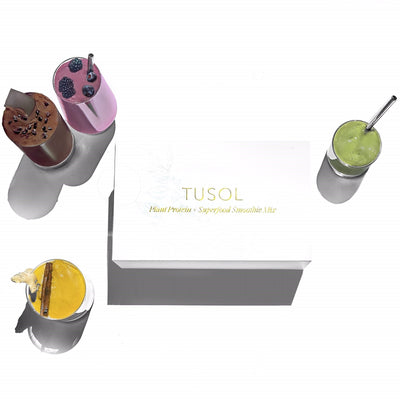Gut health has become a buzzword in wellness circles, with countless claims circulating about what’s good for your gut and what isn’t. From detox teas to probiotic pills, the wellness industry often pushes products and advice that lack scientific backing. While the importance of gut health is undeniable—playing a role in digestion, immunity, mental health, and even hormone regulation—the misinformation surrounding it can be overwhelming.
In this article, we’ll debunk some of the most common myths about gut health, using science to separate fact from fiction.
Myth 1: "All Probiotics Are the Same"
Debunked: Different strains of probiotics serve different purposes.
Probiotics are marketed as a cure-all for gut issues, with many people assuming that any probiotic will do the trick. However, not all probiotics are created equal, and the benefits depend heavily on the specific strain.
Research says: Different strains of probiotics have distinct effects. For instance, Lactobacillus rhamnosus can help with weight loss in women, while Bifidobacterium longum may reduce symptoms of irritable bowel syndrome (IBS) . Moreover, some probiotics can aid in specific conditions like bloating or constipation, but not all probiotics are beneficial for every person. Simply picking up a random probiotic from the shelf without considering its strain and intended use may not yield the desired effects.
Myth 2: "A High-Fiber Diet Is Always Good for Gut Health"
Debunked: More fiber is not always better for everyone.
Fiber is frequently recommended for improving digestion and supporting gut health. While fiber is essential for many people, especially those with regular constipation, it's not a one-size-fits-all solution.
Research says: Some individuals, particularly those with IBS or small intestinal bacterial overgrowth (SIBO), may experience more bloating and discomfort when consuming high amounts of fiber . Certain fibers, such as FODMAPs (fermentable oligosaccharides, disaccharides, monosaccharides, and polyols), can worsen symptoms for these individuals. In such cases, a low-FODMAP diet has been shown to significantly reduce bloating and discomfort . It's essential to recognize that while fiber can promote gut health, some types may exacerbate digestive issues in sensitive individuals.
Myth 3: "Gut Health Supplements Are a Quick Fix"
Debunked: Long-term diet and lifestyle changes are more effective than supplements alone.
The supplement market is flooded with products claiming to boost gut health—whether it’s digestive enzymes, probiotics, or herbal detoxes. Many people believe they can improve their gut health simply by adding supplements to their daily routine without changing their diet or lifestyle.
Research says: While certain supplements, like probiotics or digestive enzymes, can be helpful for specific conditions, they are not a substitute for a healthy diet. In a study published in Frontiers in Microbiology, researchers emphasized the importance of a balanced, diverse diet rich in whole foods, particularly fruits, vegetables, and fermented foods, for maintaining a healthy gut microbiome . Long-term improvements in gut health require sustainable changes in diet, sleep, exercise, and stress management—not just pills or powders.
Myth 4: "Your Gut Only Affects Digestion"
Debunked: Gut health impacts mental health, immunity, and more.
It’s a common misconception that the gut only plays a role in digestion. However, the gut is often referred to as the "second brain" due to its profound influence on various bodily functions.
Research says: The gut-brain axis links the gut and the central nervous system, allowing gut bacteria to influence mood, cognition, and even behavior. A 2017 study in Nature Microbiology revealed that gut microbiota imbalances could contribute to mental health disorders, such as anxiety and depression . Moreover, 70% of the immune system is housed in the gut, meaning a healthy microbiome plays a critical role in defending against pathogens .
In short, gut health extends far beyond digestion, influencing mental health, immunity, and hormone regulation.
Myth 5: "You Need to ‘Detox’ Your Gut"
Debunked: Your body already has a built-in detoxification system.
The idea of "detoxing" the gut has gained popularity, leading many people to try extreme cleanses or detox products in hopes of purging harmful toxins from their digestive system. However, this is largely unnecessary.
Research says: Your body already has a sophisticated detoxification system that includes the liver, kidneys, lungs, and gut. These organs work together to naturally eliminate waste and toxins. There is no scientific evidence supporting the need for additional detox regimens . In fact, many detox diets or supplements can do more harm than good, as they may cause electrolyte imbalances, dehydration, and even disrupt the gut microbiome.
Myth 6: "Leaky Gut Syndrome Is a Proven Medical Condition"
Debunked: Leaky gut exists, but it’s not a well-defined medical diagnosis.
"Leaky gut syndrome" has become a popular term in wellness circles, suggesting that the gut lining becomes overly permeable, allowing harmful substances to enter the bloodstream and cause a range of symptoms like fatigue, bloating, and food sensitivities. While gut permeability is real, its significance is often overstated.
Research says: Increased intestinal permeability, or "leaky gut," has been observed in certain conditions like Crohn’s disease, celiac disease, and irritable bowel syndrome . However, "leaky gut syndrome" as a catch-all diagnosis lacks strong scientific backing. There’s currently insufficient evidence to support the idea that leaky gut causes widespread symptoms in otherwise healthy individuals. While gut permeability can be an issue in specific cases, labeling it as a universal syndrome is misleading.
Myth 7: "Gluten-Free Is Better for Gut Health"
Debunked: Gluten-free diets are only necessary for those with gluten sensitivity or celiac disease.
In recent years, gluten has been villainized, with many people opting for gluten-free diets in the name of gut health. However, for most people, gluten is not inherently harmful.
Research says: Only individuals with celiac disease or non-celiac gluten sensitivity need to avoid gluten to protect their gut health . For those without these conditions, going gluten-free can result in unnecessary dietary restrictions that may lead to nutrient deficiencies. Whole grains containing gluten, like wheat and barley, provide important fibers and nutrients that support a healthy gut microbiome. Cutting out gluten without medical justification is unlikely to improve gut health and may even be counterproductive.
Myth 8: "Probiotics Must Be Refrigerated to Work"
Debunked: Not all probiotics need refrigeration.
Some believe that probiotics are only effective if they’re refrigerated, with the assumption that non-refrigerated probiotics are "dead" and therefore useless.
Research says: While refrigeration can help maintain the potency of certain strains of probiotics, not all probiotics require it. Advances in technology have allowed for the development of shelf-stable probiotics that remain viable at room temperature. A 2015 study published in the Journal of Food Science and Technology found that several non-refrigerated probiotics maintained their efficacy and stability throughout their shelf life .
When purchasing probiotics, it's more important to focus on strain specificity and the number of colony-forming units (CFUs) than on whether or not they are refrigerated.
Myth 9: "Sugar Is Always Bad for Gut Health"
Debunked: Moderate consumption of sugar is unlikely to destroy gut health.
Sugar has often been painted as a villain for gut health, with claims that it feeds harmful bacteria and leads to dysbiosis (an imbalance in gut bacteria). While excessive sugar intake can contribute to poor overall health, moderate consumption is not inherently damaging to the gut.
Research says: A 2019 study in the British Journal of Nutrition found that while diets high in processed sugars can promote the growth of harmful gut bacteria, moderate sugar intake did not significantly impact the gut microbiome in healthy individuals . The key is balance—eating a diet high in fiber, fruits, vegetables, and fermented foods can offset the effects of occasional sugar consumption. The real danger lies in diets consistently high in processed, low-fiber foods, which can disrupt the gut microbiota over time.
Myth 10: "Fermented Foods Alone Can Heal Your Gut"
Debunked: Fermented foods are beneficial but not a cure-all for gut issues.
Fermented foods like kimchi, sauerkraut, and kefir are often promoted as miracle foods for gut health due to their probiotic content. While these foods do offer benefits, they are not a cure-all for every gut issue.
Research says: A 2021 review in Frontiers in Microbiology highlights the benefits of fermented foods in promoting a diverse gut microbiome and improving digestion . However, fermented foods alone cannot replace medical treatment for serious gut conditions like IBS, Crohn’s disease, or ulcerative colitis. Furthermore, not everyone tolerates fermented foods well, as some individuals may experience bloating or discomfort from the high histamine content in certain fermented products.















